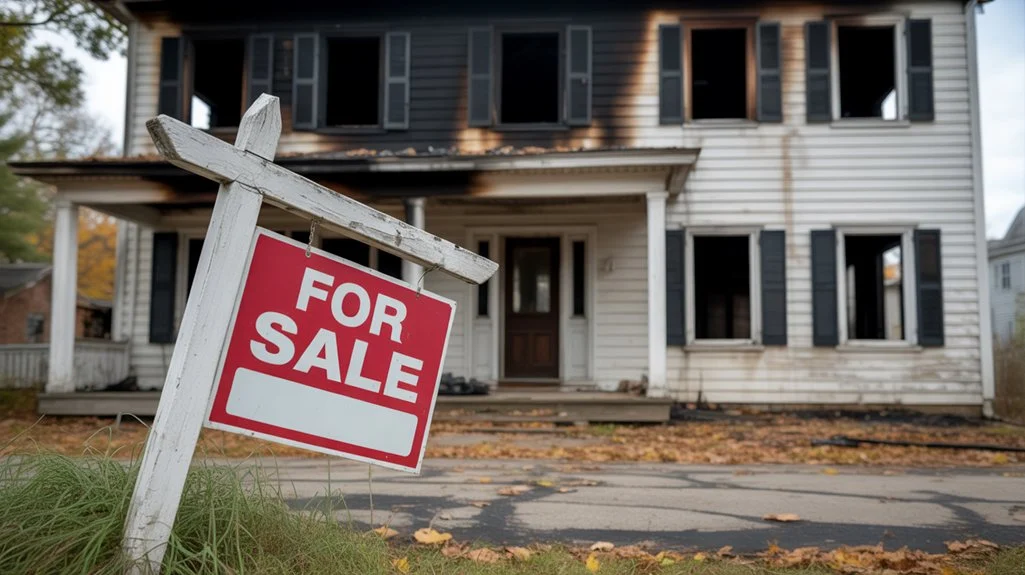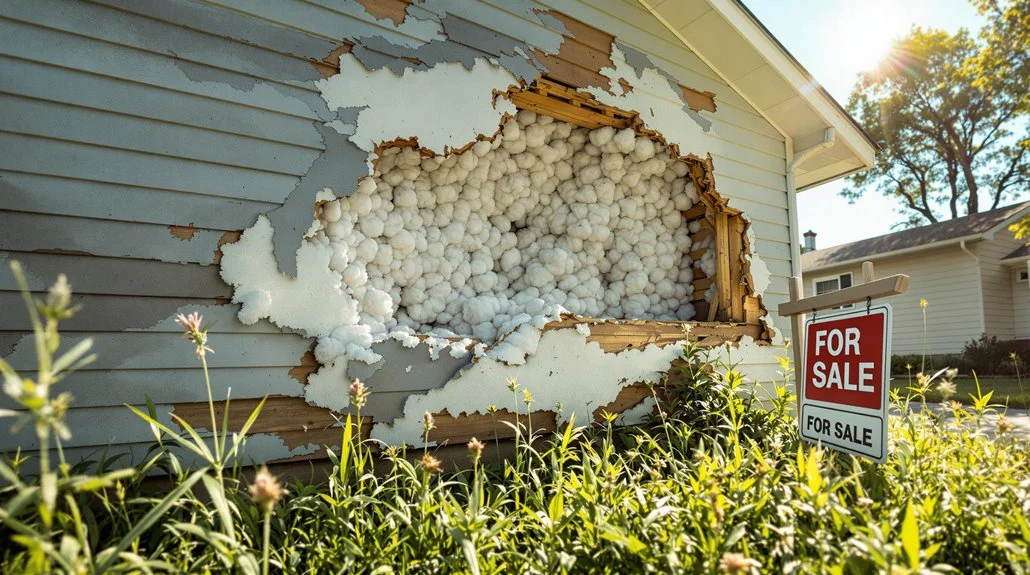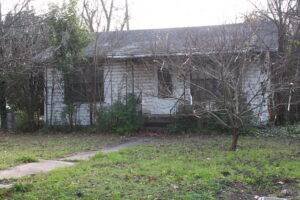"Selling a house with storm damage can be tricky. It's important to know what you're up against, so you don't get taken for a ride when dealing with prospective buyers or insurance companies.
In this article, we'll cover the steps and strategies you need to take in order to sell your home quickly and maximize profits from any storm-related damages. Read on for all the details!
No matter how much preparation you put into it, selling a house isn't easy – especially if there's been storm damage. You want to make sure that everything is done right so that you get top dollar for your home without getting taken advantage of.
With the right information and some savvy negotiation skills, though, it doesn't have to be such an uphill battle! Here, we'll show ya exactly how to tackle these issues head-on so that you can move forward with confidence.
Assessing Damage And Making Repairs
When selling a house with storm damage, it's essential to assess the extent of that damage and determine what needs to be repaired. Start by taking detailed photos from all angles so you have a visual record of the condition before repairs begin.
Document any areas of the home that need attention, like damaged windows or roofing tiles.
Next, evaluate your budget for making necessary repairs. The cost may depend on how severe the damage is, as well as whether you hire professionals or tackle projects yourself.
If there are safety concerns due to storm damage, prioritize those first since they're likely going to require professional help anyway.
Finally, take action towards fixing up anything that prevents you from getting top dollar when it comes time to list your home. Make sure everything is in good shape and any structural issues are addressed promptly – buyers will want assurances that their new property is safe and secure!
Determining The Value Of Your Home
Alright, now that you've taken the time to assess and repair any storm damage on your home, it's time to figure out how much it's worth. It can be challenging—especially if you're unfamiliar with the real estate market in your area—but by taking a few simple steps, you can get an accurate estimate of what your house is worth.
First, check out recent sales prices for similar homes in your neighborhood. Look at listing sites like Zillow or Redfin as well as local newspapers and magazines. This'll give you an idea of what kind of money other people are getting for houses like yours. Also make sure to compare apples to apples: A three-bedroom ranch from 2005 should not be compared to a two-bedroom split level from 2011!
In addition, consider hiring a professional appraiser who specializes in residential properties. Appraisers will do more than just look up comparable sales; they'll inspect every inch of your property and take into account factors such as lot size, landscaping and condition of both interior and exterior features when making their estimates. If there have been major renovations done since the last sale, these may also need to be included in order to arrive at an accurate assessment.
By researching current market trends and consulting with a reliable appraiser, you’ll have all the information necessary to determine exactly how much value has been added after repairs were made due to storm damage – ultimately helping you decide on a fair asking price for potential buyers.
Preparing Your Home For Sale
If you’re selling a house with storm damage, it can be tough to know how to get started. But don’t worry—with the right preparation and knowledge of your local real estate market, you can make sure your home is ready for sale in no time.
First things first, take the time to assess any damage caused by the storm and figure out what repairs are necessary. You may need to hire an inspector or contractor to help determine which fixes are mandatory and which ones aren’t as important. And if needed, look into whether there's any insurance coverage that could cover part of the cost of repair.
Once all necessary repairs have been made, focus on giving potential buyers a good impression when they come through the door. This includes making minor aesthetic improvements such as painting walls and cleaning up landscaping outside.
If you want to go above and beyond, splurge on new appliances or add some smart technology features like motion-sensor lights or voice-controlled thermostats. Doing so will show prospective buyers that you've taken care of your property even after experiencing storm damage!
Negotiating With Prospective Buyers
Now that you’ve prepared your home for sale, the next step is negotiating with prospective buyers. You need to be confident and proactive in order to get the best deal possible. Here are some tips to help you navigate negotiations:
First, make sure you know all of the facts about the storm damage done to your home. Be honest and up front when discussing repairs needed or costs associated with them.
Make sure you include any work already done in the cost of the house so you can negotiate a fair price. This will also save time if an inspection reveals additional damage that needs attention.
It's important to remember not to give away too much during negotiation – don't let emotions take over! Keep track of what has been discussed and agreed upon, such as repair costs and closing date.
Also, have a firm idea of how much profit is necessary before entering into discussions with potential buyers; otherwise it may be difficult to walk away from a low-ball offer without feeling pressure.
When negotiations come to an end, both parties should feel satisfied by having reached an agreement that works for everyone involved. With these tips in mind, you'll be more equipped than ever to sell your home successfully – despite any storm damage!
Working With Insurance Companies
It's important to think about insurance when selling a house with storm damage.
The first step is getting an assessment of the damage and contacting your insurer to report it.
Your insurer will likely send out an adjustor who can provide estimates for repair costs, which you'll need before going forward in finding a buyer.
Afterward, make sure you share any documents from your insurer with potential buyers so they know what their options are for repairs or remediation after purchase.
If the cost of repairs exceeds your policy limits, you may have to pay additional money out-of-pocket to restore your property.
That can create a challenge if you're trying to sell the home quickly and don't have liquid funds available right away.
You might also find yourself stuck between two insurers—yours and the buyer’s—if there's disagreement on how much coverage each party should carry during the transaction process.
No matter what happens, communicate openly and frequently with both parties involved so that everyone understands their obligations and responsibilities throughout the sale process.
This way, there won't be any surprises down the line when it comes time to close escrow.
Navigating Legal Requirements
When selling a house with storm damage, it's important to be aware of the legal requirements.
Before you even think about listing your home and negotiating offers from buyers, make sure that all permits required for repairs have been obtained. These will vary depending on where you live and what type of damage has occurred; if in doubt, check with your local housing authority or building inspector for guidance.
It can also be beneficial to consult an experienced real estate lawyer before getting too far along in the process. They're great resources when it comes to understanding contracts and any other paperwork related to the sale. Additionally, having a qualified attorney by your side could help protect you from potential liabilities associated with the damages caused by storms or other disasters.
At this point, you should have a good understanding of how much work needs to be done before putting your house up for sale. Now is the time to start finding reputable contractors who are capable of completing necessary repairs efficiently and cost-effectively – so get out there and do some research! Doing so may help ensure that you’re able to successfully sell your property while making more money than expected in the long run.
Maximizing Profits From Storm Damage
Alright, now that you’ve navigated the legal requirements of selling a house with storm damage, let’s talk about maximizing your profits.
This can be tricky if not done correctly. First and foremost, make sure you have an accurate assessment of the home’s current value – this includes what it would cost to fix any damages caused by the storm. Don't forget to factor in the estimated time needed for repairs as well!
Next, consider whether or not you'd like to do some of the repairs yourself. No matter how talented you may be at DIY projects, there's always risk associated with taking on too much responsibility without professional help. Make sure whatever repair work is done meets local building codes and safety standards.
It also helps to consult a real estate agent who has experience dealing with storm-damaged properties before making any major decisions. Lastly, determine if there are any tax incentives available for fixing up a damaged property in your area. Some states offer credits or deductions on state taxes based on specific criteria related to renovations and improvements made after a natural disaster occurs – so don't discount these possibilities when looking ways to increase net profit from your sale!
Conclusion
When it comes to selling a house with storm damage, the process can be overwhelming. But if you take it step-by-step and arm yourself with knowledge of the process, you'll be able to maximize your profits and get the most out of your home sale.
I'd recommend starting by assessing the damage and making repairs, then determining the value of your home before getting ready for potential buyers.
With patience and diligence throughout this process, you'll have success in selling your property despite any storm damage!
"







